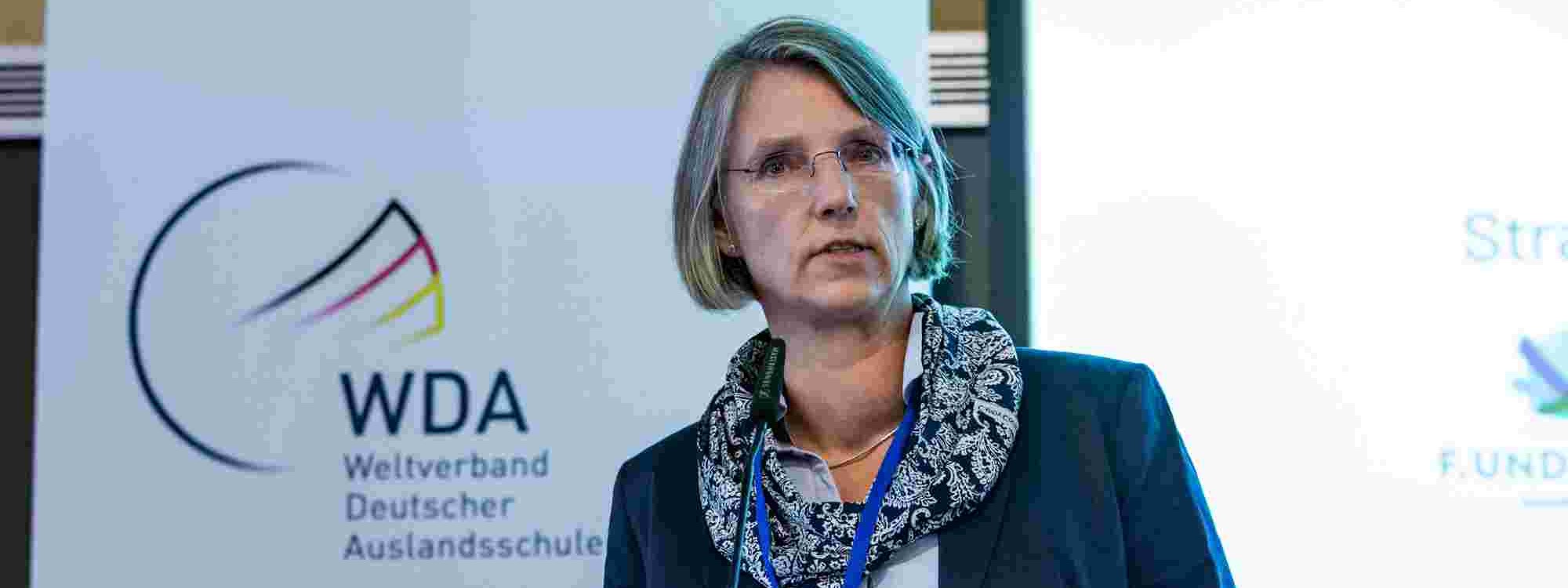How can the impressive social commitment of German schools abroad be maintained? What do the schools and the World Association of German Schools Abroad (WDA) expect from the funding organisations in Germany? How can reliable financial and personnel support for German schools abroad be ensured?
These and other questions were discussed by WDA board members, representatives of the Federal Foreign Office, the Standing Conference of the Ministers of Education and Cultural Affairs of the Federal States (KMK), academic, business, and political representatives at the WDA conference held from 13 to 16 May 2024 in Berlin.
One thing became clear: The interests and needs of German schools abroad must be bundled and given greater prominence in education policy.
“For us as the WDA, representing political interests is more important than ever,” said Friederike Gribkowsky, who was Chair of the WDA Board at the time, during the conference. She was referring to the challenging times of crisis and cost-cutting pressure and emphasised the importance of the WDA as a representative of the interests of independent, non-profit German schools abroad. The WDA aims to bring together experts from these schools in a global network to support schools worldwide.
During the conference, the WDA general meeting was also held, where a new board was elected.
Heilke Daun, Chair of the Board of the Deutscher Schulverein Windhoek (1949) of the Deutsche Höhere Privatschule Windhoek (DHPS) since 2017 and a member of the WDA Board since 2019, stood for a further term and will take over as Chair of the Board with immediate effect. Ludwig Johannsen, alumnus and former Managing Director of Deutsche Schule Mexico-Stadt, will serve as her deputy.
"Together we can achieve success and continue to thrive," says Daun, who believes that commitment to the WDA and the DHPS Board is crucial for sustainably strengthening German schools abroad and preparing them for the future.
The Deutsche Höhere Privatschule Windhoek (DHPS) is part of a network of nearly 140 German schools abroad in 72 countries, educating around 85,000 pupils, 60,000 of whom are of non-German origin. Under the supervision of the Federal Foreign Office, the Central Agency for Schools Abroad (ZfA) advises the German schools abroad and supports them with staff and funding. Since 2014, the schools have also been legally entitled to funding from Germany under the German Schools Abroad Act.
Around 2,000 teachers seconded from Germany teach at these schools worldwide and receive organisational, educational and financial support from the ZfA during their time abroad.
Information:
Home | Weltverband Deutscher Auslandsschulen e.V. (auslandsschulnetz.de)Photos: © Jan Michalko / WDA


